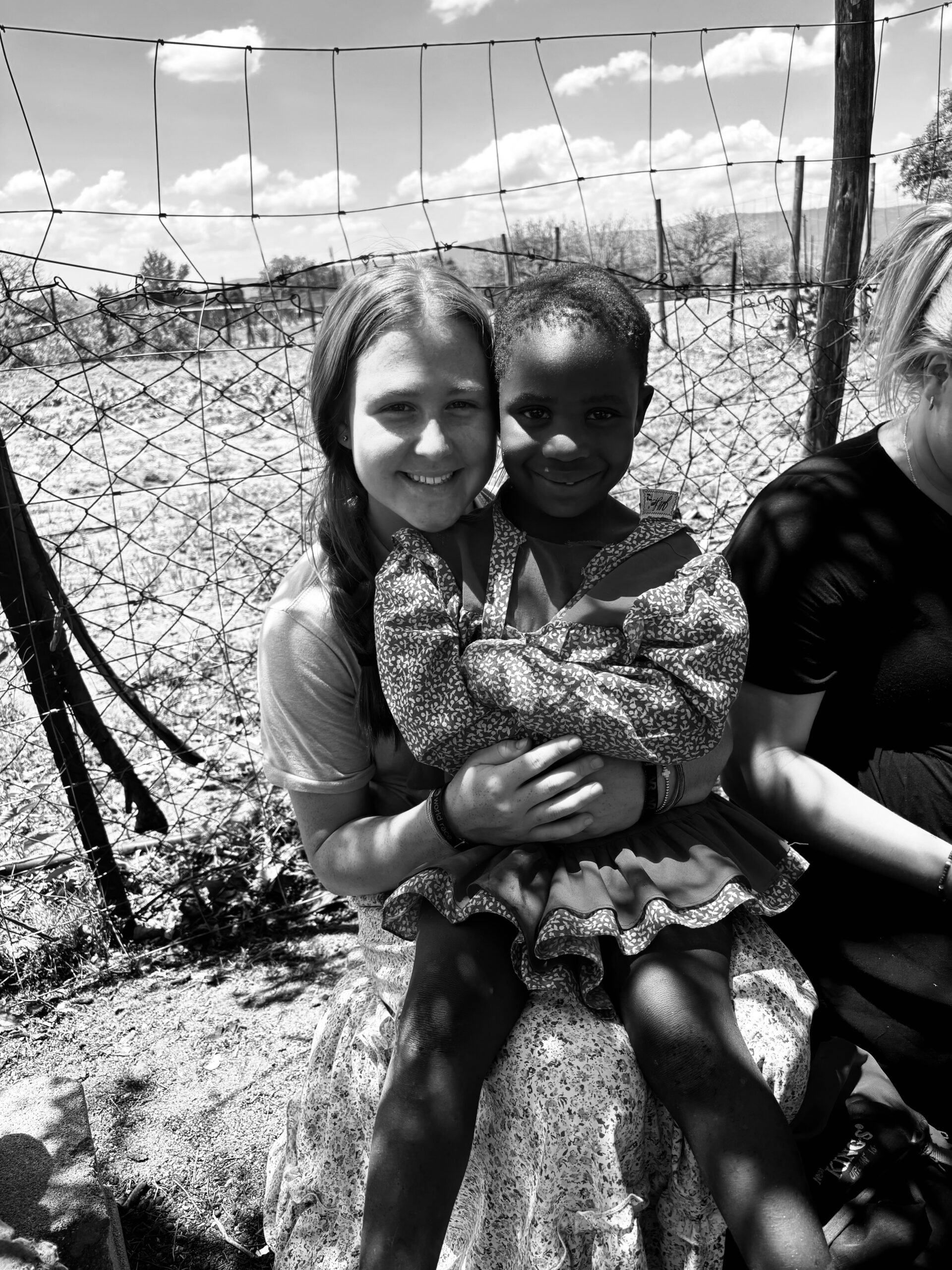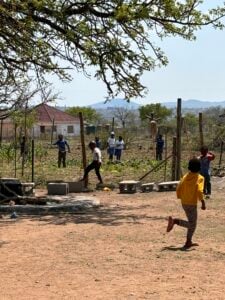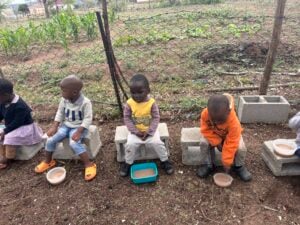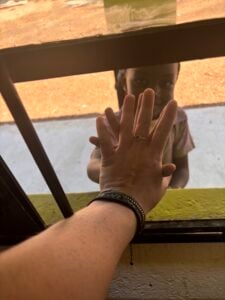
As I begin to settle in here in Eswatini, I find myself wrestling with a sense of shock at the living situations i’ve witnessed. I serve at 1 of the 35 different care points, each filled with 100 to 200 children. These care points are like small communities where the children gather, not just for food but for a sense of belonging. It’s a heart-wrenching experience to see so many young faces filled with joy and laughter, yet many of them are struggling with the harsh realities of poverty. The food we serve them is the same every single day—a simple porridge or a plate of rice It’s all they have, and it made me think deeply about the comforts I often take for granted.

Can you imagine eating the same thing for every meal every day? It’s hard to fathom for someone like me, who enjoys so many different foods. Yet, for these children, this routine is not just a dietary limitation; it’s a reminder of their circumstances. They approach mealtime with gratitude, knowing that this bowl of porridge is a luxury in their world. I often find myself reflecting on the idea of sustenance—not just physical but spiritual.

In John 6:35, Jesus says, “I am the bread of life; whoever comes to me shall not hunger, and whoever believes in me shall never thirst.” This verse took on new meaning for me here. While these children may be physically hungry day in and day out, they are fed in ways that extend beyond the physical realm. The care points provide not just food, but also love, community, and a sense of security.

At the care point, I witness the incredible spirit of community. Despite their circumstances, the children and caregivers create a joyful atmosphere. They sing songs, share stories, and support one another. This communal approach is part of Acts 2:42-47, where believers came together, sharing everything in common. The joy in their laughter reminded me that community and love can flourish even in the most challenging environments.
As I served meals, I began to realize that the consistency of their diet also mirrored the consistency of their faith. These children, some of whom have faced unimaginable loss, still cling to hope and joy. They know the routine of their meals and their daily lives, but they also know the love of a greater God who provides for them in ways they might not fully understand.

Being in Eswatini has taught me valuable lessons about gratitude, resilience, and faith. I’ve learned that comfort isn’t always found in abundance but can be discovered in the act of serving others. Every smile from a child as they receive their meal is a reminder that joy can be found in the simplest of things.Scripture reminds us in Philippians 4:11-13 that we can learn to be content in any situation. Paul writes, “I have learned in whatever situation I am to be content.” These children are teaching me that contentment isn’t about having more; it’s about recognizing the gifts within our circumstances.

In this world, we often focus on what we lack or desire—better jobs, bigger homes, fancier meals. Meanwhile, these children are just grateful to have enough to eat. Their perspective challenges me to reconsider my own priorities and the way I approach life’s daily grind. I often get caught up in my own concerns, forgetting the countless blessings I enjoy every day.

As I continue my journey here in Eswatini, I carry with me the faces of the children I’ve served. Their resilience is a testament to their unwavering faith, a reminder of God’s presence in the most challenging of circumstances. I may have arrived in Eswatini in shock, but I continue with a heart full of gratitude and a renewed perspective on what it means to truly live.

In a world where it’s easy to overlook the struggles of others, I encourage you to seek out those moments of connection, to serve where you can, and to remember the power of community and love. Because at the end of the day, it’s not just about the food on our plates but the relationships we cultivate and the lives we touch.









